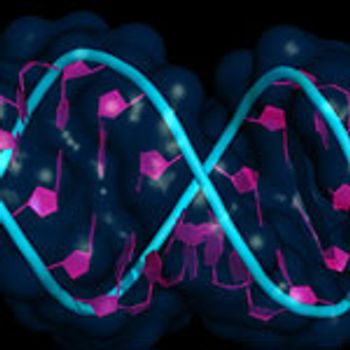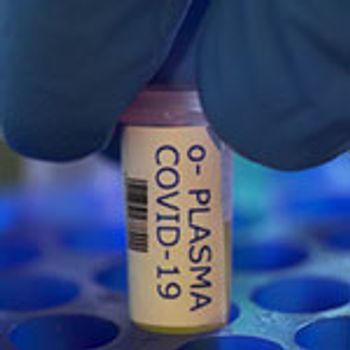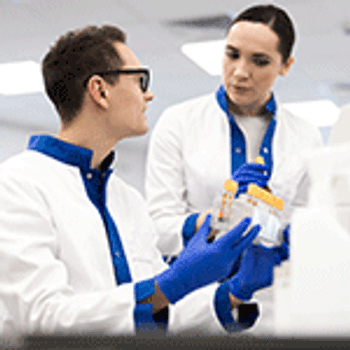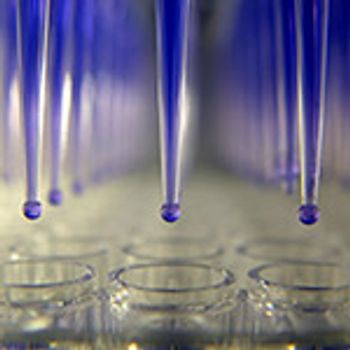
RNA is easier to manipulate than DNA but challenging to deliver to the right cells.

RNA is easier to manipulate than DNA but challenging to deliver to the right cells.

Data and science must guide FDA in making pressure-filled COVID-19 vaccine and therapy approval decisions.

The guidance document provides recommendations regarding data needed for the manufacturing, development, and approval of a COVID-19 vaccine.

Biotechnology company, ILC Therapeutics, has revealed that it has entered into a research partnership with the University of St Andrews aimed at progressing a therapeutic drug that can treat COVID-19 to clinical trials.

The agency will be waiving fees for scientific advice for academia developing orphan drugs.

The Biomedical Catalyst has been relaunched, meaning that innovative biotech companies will have the opportunity to access a share of £30 million (US$38 million) in grant funding.

The companies have entered into a development and manufacturing agreement for Anthos Therapeutics’ abelacimab for treating thrombotic disorders.

The collaboration will focus on novel therapeutics targeting RNA-modifying proteins for cancer treatment.

Agreements with the PolyPeptide Group and AGC Biologics will scale up production of the Novavax Matrix-M adjuvant.

Therapies for early and late treatment and passive immunization of COVID-19 are needed and can be developed using antibodies from recovered patients.

Bioanalytical studies are an important aspect of biologic drug development that may necessitate partnering with bioanalysis experts.

Biopharmaceutical company, Atriva Therapeutics, has announced, in a May 28, 2020 press release, that it will develop ATR-002, an oral small molecule, for treatment of patients with moderate-to-severe COVID-19 that require hospitalization in a Phase II study.

CanSinoBIO will license-in Precision NanoSystems' proprietary RNA vaccine platform technology while the latter leads the development of the RNA vaccine formulation.

The companies have formed a collaboration to develop a novel human recombinant protein as a therapeutic candidate against COVID-19.

The Center for iPS Cell Research and Application Foundation and the Cell and Gene Therapy Catapult have announced the launch of a new collaborative research project that will focus on induced pluripotent stem cell characterization.

Santen Pharmaceutical has concluded a licensing agreement with jCyte for the development, registration, and commercialization rights to jCell, an investigational retinitis pigmentosa therapy, in Japan, Asia, and Europe.

Boehringer Ingelheim will use the partnership to reveal novel insights into the complexities of various inflammatory diseases, which opens the potential for a clearer understanding of potential candidate biomarkers.

The extension of the company’s product offerings to include the anti-certolizumab pegol antibodies offers critical reagents for the development of assays for TNF alpha inhibitor biologics and their biosimilars.

The companies have entered into a manufacturing agreement to supply leronlimab, an investigational new drug currently being used in clinical trial protocols for COVID-19.

Will moving at “warp speed” to develop a vaccine impact efficacy or safety?

Next-generation therapeutics and regulatory requirements create demand for complex, fit-for-purpose tests.

AstraZeneca and the University of Oxford have announced that they will collaborate on the global development and distribution of the university’s potential recombinant adenovirus vaccine aimed at preventing COVID-19 infection.

NIH trial shows remdesivir accelerates recovery; Gilead study shows similar efficacy for 5- and 10-day dosing.

A new strategic plan from the National Institute of Allergy and Infectious Diseases (NIAID), part of the National Institutes of Health, details the institute’s plan for accelerating research to diagnose, prevent and treat COVID-19.

US government and industry partners will coordinate to bring the most promising COVID-19 vaccine and treatment candidates to clinical trials.